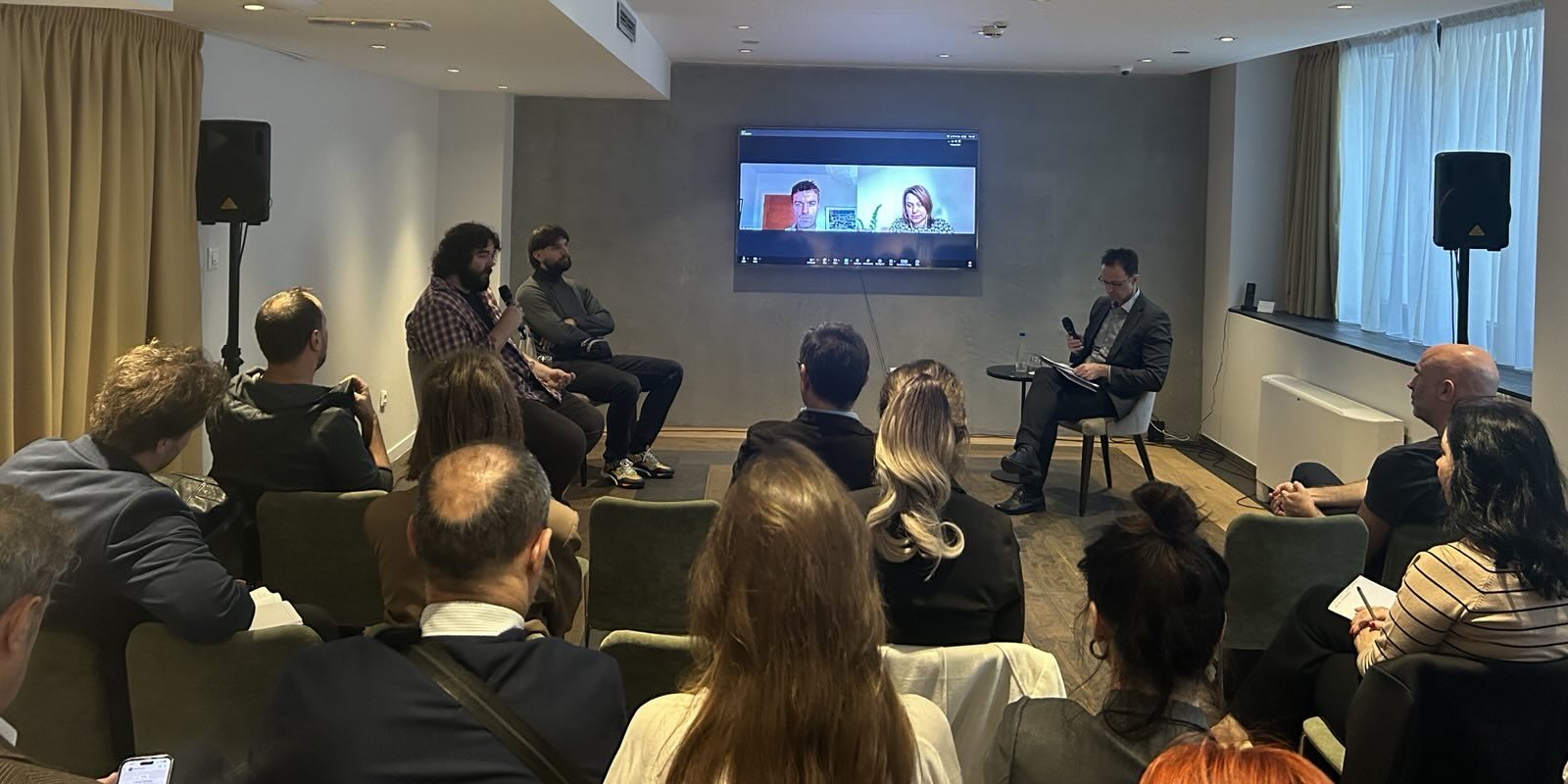SHARE
News:
BCSP Research Team Authors of the Report on Extremism in Serbia
The Serbia Report written by BCSP Executive Director Predrag Petrovic and BCSP Researcher Isidora Stakic examines drivers of radicalisation and violent extremism in the Western Balkans as a part of The Extremism Research Forum. The research commenced in 2017, exploring a range of themes and topics with key stakeholders within ...
The Serbia Report written by BCSP Executive Director Predrag Petrovic and BCSP Researcher Isidora Stakic examines drivers of radicalisation and violent extremism in the Western Balkans as a part of The Extremism Research Forum.
The research commenced in 2017, exploring a range of themes and topics with key stakeholders within communities, civil society and government, in order to build a coherent picture of the specific situation in each country. This research seeks to inform and assist in the development of CVE policies and programming, offering key findings that could be relevant to practitioners and policymakers working in the field of countering violent extremism.
Each country study: 1) maps out the forms of extremism; 2) examines drivers and contributing factors of radicalisation (global, regional, national and local drivers, political and socio-economic); 3) develops a profile of at risk communities. Taking into account the multifaceted nature of extremism, the research also; 4) identifies any potential links with organised crime, money laundering, links to terrorism; and; 5) analyses transnational co-operation of violent extremist groups.
The Serbian Context
Since the violent break-up of the Socialist Federal Republic of Yugoslavia (SFRY) in the 1990s, right-wing and religious extremism has been present in Serbia. During the civil war, extremists were mainly part of various (para) military groups, while after 2000 and the beginning of the Serbian democratic transition, they morphed into associations and movements spreading the hate speech and being involved in violent incidents. However, they did not attract much attention of the general public and Serbian authorities. Only violent incidents sparked short-lived public and media attention. The Serbian authorities’ approached extremism similarly, responding reactively to incidents, in an ad hoc and repressive manner; in this regard, Serbian authorities banned two right-wing extremist organisations, “Obraz” and “SNP Naši 1389”, without forbidding their offshoots and splinter groups. Similarly, one group of individuals from Sandžak were convicted on terrorism charges. But Serbian authorities did not attempt to explore reasons behind the spread of extremism, and nor did they give consideration to introduce preventive measures.
The rise of so called Islamic state (IS) and the fact that 49 Serbian citizens joined IS or other militias in Syria, attracted more public attention. More precisely, it was the news of some foreign fighters threatening NGO activists via social networks and their first deaths in 2014 that raised grave concerns among mainly the local community. The Ukrainian conflict that broke out in 2014 and the fact that around 70 Serbian citizens joined the pro-Russian side only further contributed to higher public interest in this problem. However, the large scale terrorist attacks in Europe committed by foreign fighters from Syria prompted intensive public and government interest in foreign fighters the (violent) extremism phenomenon, and mainly to Islamist extremism. At the same time, the international community started pressuring the Serbian government to criminalise foreign fighters as well as to adopt preventive policies.
The belated interest of the public and government in this phenomenon has affected the state of research of (violent) extremism in Serbia. Research on extremism is scarce and fragmented both in terms of the research subject and covered time. There is no baseline study of (violent) extremism in Serbia which in turn raises questions around the effectiveness of any policy aimed at tackling this problem. For these reasons, this paper is aimed at identifying and analysing the major drivers of (violent) extremism and how these factors intertwine and strengthen each other in spreading extremism.
Download the full report HERE.
The policy brief is available HERE.
This study forms one of the six contextual research pieces, presenting findings from in-depth primary research conducted with communities and wider stakeholders with knowledge of the violent extremist threats specific to the country. The findings are based on primary, and where credible, secondary data sources in order to create an informed and nuanced picture of the violent extremist activity or potential threat within the country. Importantly, it is intended that this research usefully informs policy development, providing practical recommendations, while also feeding into an overarching regional report, where broader linkages and key transnational issues that have been identified from the research will be examined.
The Extremism Research Forum is a UK government funded research project, examining drivers of radicalisation and violent extremism in the Western Balkans – Albania, Bosnia and Herzegovina, Kosovo, Macedonia, Montenegro, and Serbia.
RELATED

Date: 04.11.2025.
Author: Belgrade Centre for Security Policy
At the panel discussion “Freedoms Under Pressure: Civil Society and Digital Oversight in Serbia and Abroad”, organised by the Belgrade Centre for Security Policy (BCSP) on 31 October in Belgrade, speakers warned that digital surveillance and spyware use are rapidly becoming tools of political control in Serbia and across Europe, posing severe risks to human rights and democracy.

Date: 11.05.2023.
Author: Belgrade Centre for Security Policy
The citizens of Serbia are still shocked and appalled by the last week’s two mass shootings that took place in less than 48 hours, resulting in 17 dead and another 20 wounded.

Date: 26.04.2023.
Author: Belgrade Centre for Security Policy
The Belgrade Centre for Security Policy (BCSP) organized a panel discussion titled “Serbia and Ukraine: Challenges of War” that gathered experts from Ukraine and Serbia, aiming to discuss the relations between Serbia and Ukraine, pro-Russian narratives and position of Ukraine and the Western Balkans in the European security architecture after the end of the war. Helena Ivanov, an associate research fellow from the Henry Jackson Society, moderated the panel.


